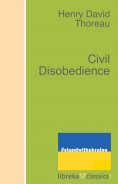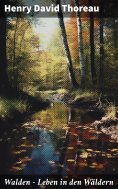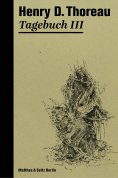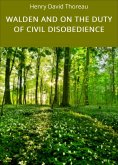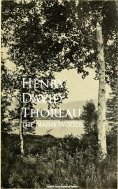Walden
Über das eBook
In Henry David Thoreau's 'Walden', the reader is invited to explore the author's experience of living a simple and deliberate life in nature. Thoreau's transcendentalist beliefs are evident throughout the book, as he reflects on the beauty of the natural world and the importance of self-reliance. The work is known for its poetic and philosophical writing style, as Thoreau contemplates the true meaning of existence and the pursuit of a meaningful life. 'Walden' is considered a classic of American literature, highlighting the author's deep connection to nature and his quest for a more authentic way of living. Henry David Thoreau, a prominent figure in the American transcendentalist movement, wrote 'Walden' as a reflection on his own experience of living close to nature at Walden Pond. Thoreau's belief in the importance of simplifying one's life and seeking truth in nature heavily influenced his writing, making 'Walden' a powerful testament to his ideals and philosophy. I highly recommend 'Walden' to readers interested in transcendentalism, nature writing, or philosophical reflections on the meaning of life. Thoreau's introspective exploration of the natural world and his quest for simplicity offer valuable insights and inspiration for anyone seeking a deeper connection to the world around them.
Über den Autor
Henry David Thoreau (1817–1862) was an American essayist, poet, philosopher, abolitionist, naturalist, tax resister, and historian. A leading transcendentalist, Thoreau is best known for his book 'Walden; or, Life in the Woods' (1854), in which he articulates his ideas about nature, society, and individual sovereignty. Born in Concord, Massachusetts, Thoreau developed an early love for solitude and the natural world, attending Harvard College before returning to Concord to contribute to the New England intellectual movement. His writings are rooted in personal experience and observation, blending a naturalist's exactness with transcendentalist philosophy. 'Walden,' a reflection on simple living in natural surroundings, emerged from his famous experiment of living over two years in a cabin he built near Walden Pond. In this work, Thoreau meditates on the beauty of nature, the importance of self-reliance and individualism, and criticizes materialism and social conventions. His influence reached beyond literature and philosophy; Thoreau's essay 'Civil Disobedience' (1849), advocating for nonviolent resistance to unjust laws, has inspired numerous social movements. Though he published only a few books in his lifetime, Thoreau left an indelible mark on American thought, inspiring environmentalism, civil rights, and deeply affecting readers with his lyrical style and principled stand against the status quo.
Produkt Details
Verlag: DigiCat
Genre: Sprache - Englisch
Sprache: English
Umfang: 260 Seiten
Größe: 690,2 KB
ISBN: 8596547398899
Veröffentlichung: 13. November 2022




